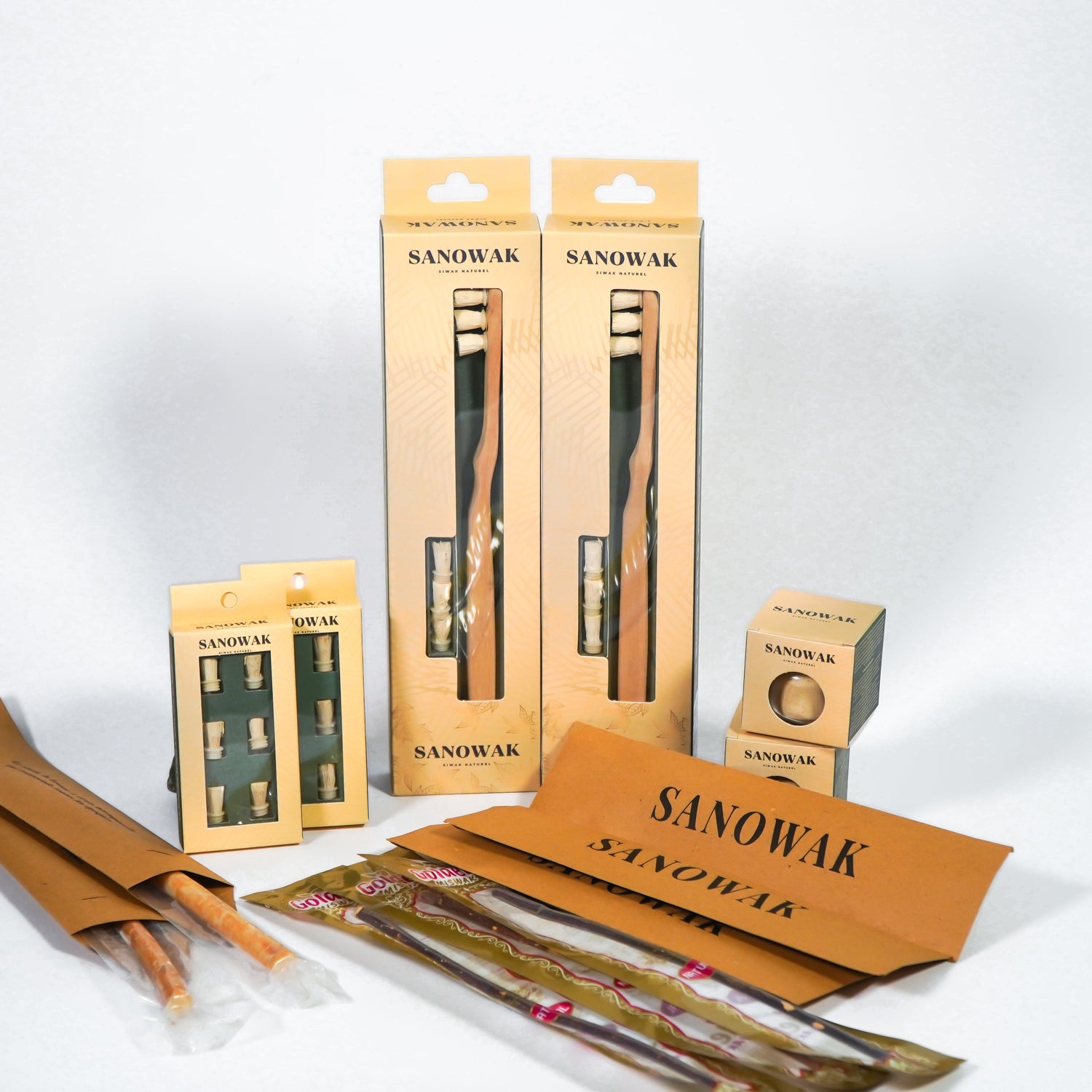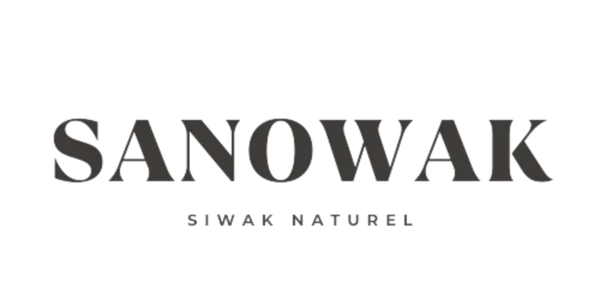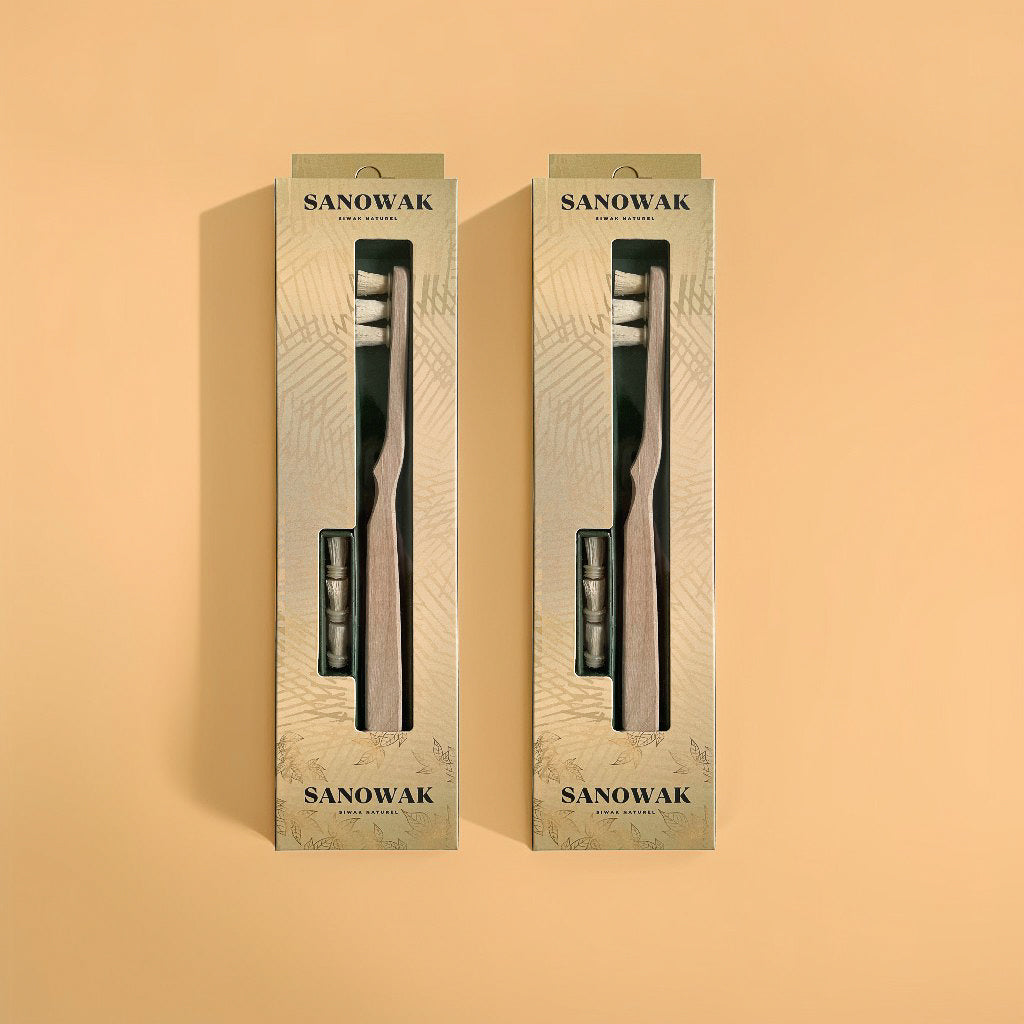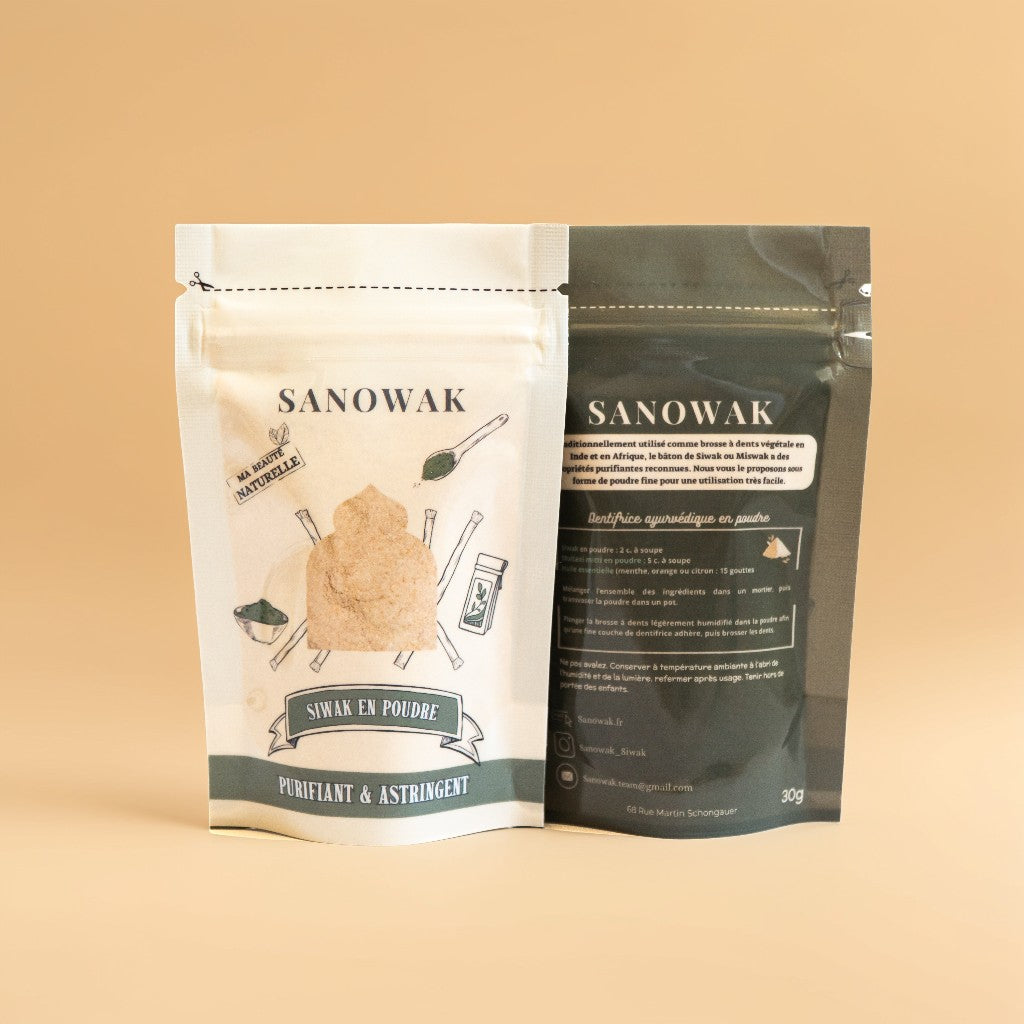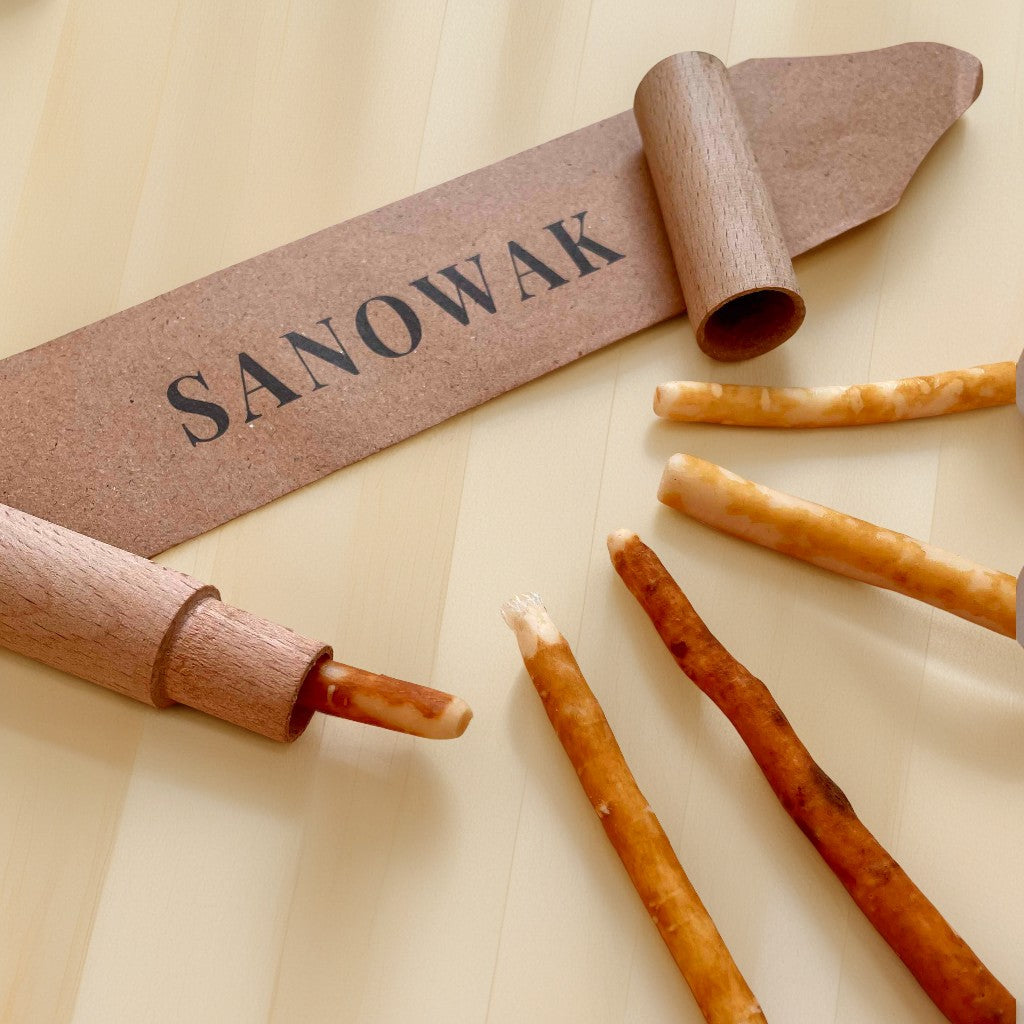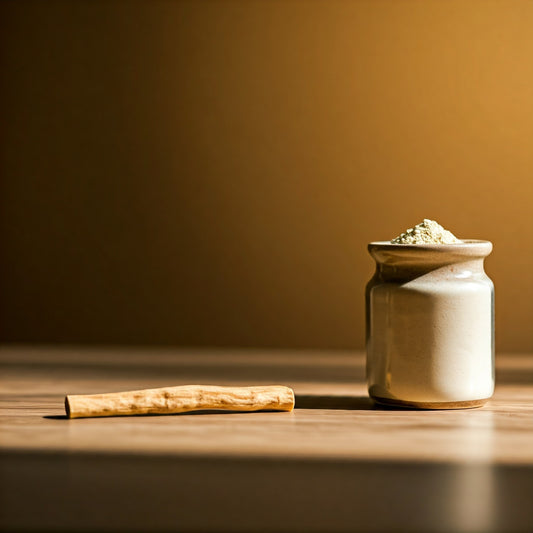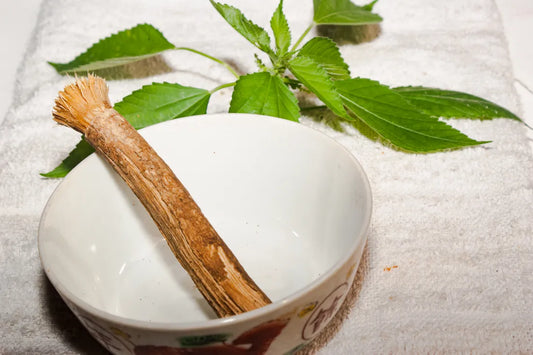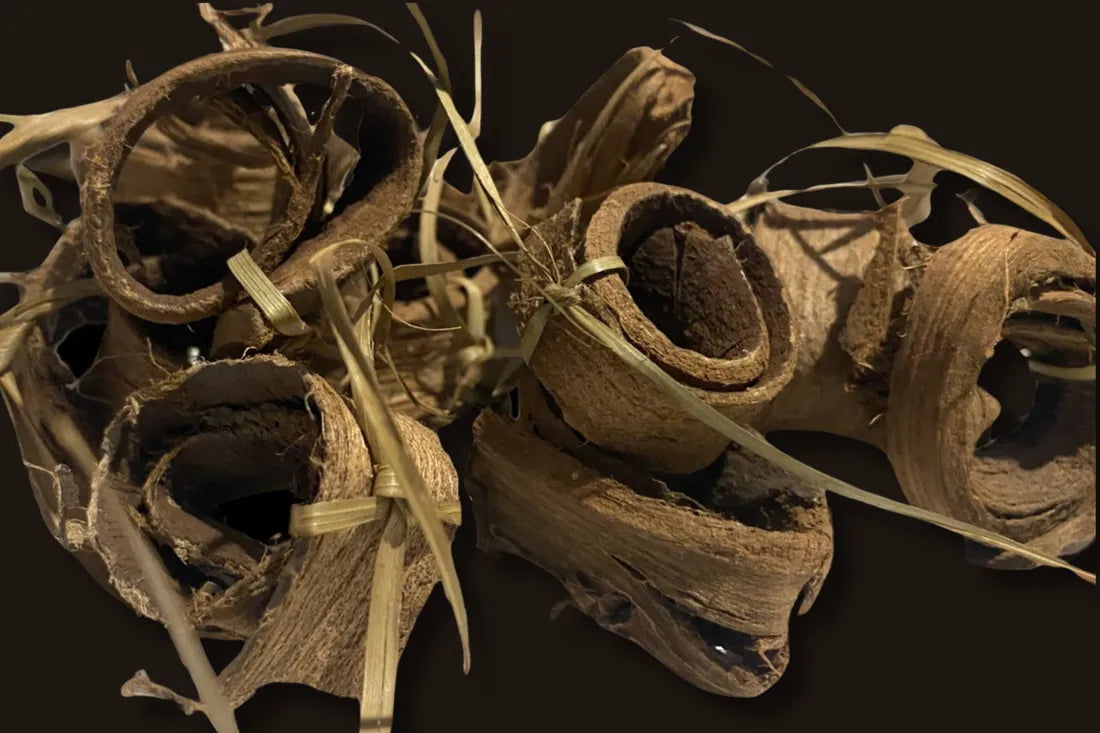
The benefits of Moroccan siwak
Moroccan siwak , also called "souak" or "miswak", is much more than a simple stick for oral hygiene. Imagine a small piece of wood that has crossed the centuries, used for thousands of years to clean and care for teeth. Discover here the benefits of Moroccan siwak that could change your hygiene routine in a natural and effective way.
Composition and properties of Moroccan siwak
You may be wondering why Moroccan siwak is so exceptional for oral health? It's all in its composition:
- Alkaloids : These are powerful antimicrobial agents that effectively fight bacteria.
- Silica : This mild abrasive helps remove tartar while whitening teeth naturally.
- Fluoride : It strengthens tooth enamel, making teeth more resistant to cavities.
- Vitamin C : It promotes healing and contributes to healthy gums.
- Calcium and phosphorus : They remineralize the enamel, thus strengthening the teeth from the inside.
- Tannins, saponins and flavonoids : These compounds, astringent and anti-inflammatory, soothe and treat sensitive gums.
Thanks to this unique composition, the benefits of Moroccan siwak are quickly felt from the first uses.
The benefits of Moroccan siwak for oral health
Teeth cleaning and whitening
Let's start with one of the most appreciated benefits: natural teeth cleaning and whitening. Moroccan siwak cleans teeth deeply by removing plaque and tartar. Its fibrous texture acts a bit like a soft but extremely effective brush, which polishes and whitens teeth. In addition, it naturally reduces stains caused by coffee, tea or even tobacco. Do you dream of regaining the shine of your teeth without chemicals? This is where Moroccan siwak comes in!
Antibacterial and antiseptic action
The benefits of Moroccan siwak also include an antibacterial and antiseptic action essential for good oral hygiene. This small wooden stick fights bacteria that cause cavities, gingivitis and bad breath. By using it regularly, you help maintain a balanced oral flora. And when we talk about a healthy mouth, Moroccan siwak knows how to do it!
Strengthening the gums
Your gums will also benefit from the benefits of Moroccan siwak . Regular use strengthens the gums, reduces the risk of bleeding and inflammation. Its richness in vitamin C promotes the healing of small wounds, which is ideal for sensitive gums. By adopting this simple gesture, you will rediscover the comfort of healthy gums, without pain or discomfort.
Stimulation of salivation
The slightly bitter taste of Moroccan siwak naturally stimulates saliva production. Why is this important? Because saliva helps neutralize oral acids, protecting teeth from cavities. A well-hydrated mouth is better able to defend itself against acid attacks. Thanks to Moroccan siwak, you keep your mouth hydrated and protected.
How to use Moroccan siwak
Using Moroccan siwak is as easy as pie! However, there are a few steps to follow to get all the benefits:
- Prepare the stick : Cut a small piece of siwak (about 1 cm in length).
- Dampen : Run it under water until it is slightly damp and ready to use.
- Scrub teeth and gums : Use gentle, circular motions to scrub your teeth, gums, and even your tongue.
- Renew after use : Discard the used part and prepare a new piece for next time.
With this method, you optimize the benefits of Moroccan siwak and get results quickly. Simple, right?
Precautions for use
Although Moroccan siwak is a 100% natural product, it is best to follow certain precautions to use it safely:
- Allergy test : Do a small skin test before first use, to avoid any risk of allergy.
- Eye Caution : Avoid contact with eyes, as siwak may cause mild irritation.
- Consult a healthcare professional : If you are pregnant, breastfeeding or undergoing medical treatment, do not hesitate to seek advice.
The benefits of Moroccan siwak make this stick a natural and ecological alternative to conventional oral hygiene products. By integrating it into your daily routine, you are choosing an ancestral solution, respectful of the environment and of formidable effectiveness for the health of your mouth.
